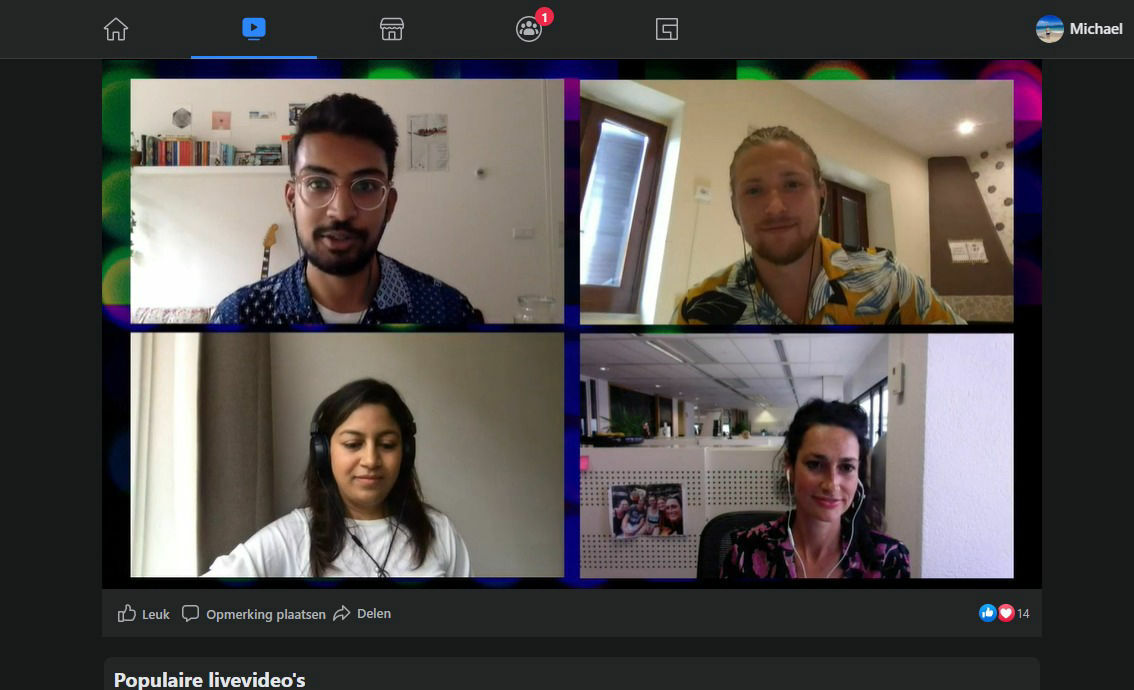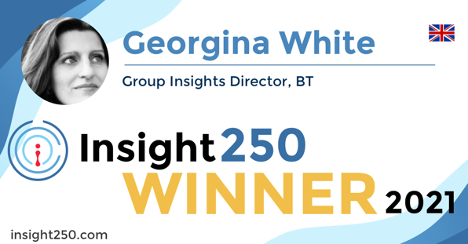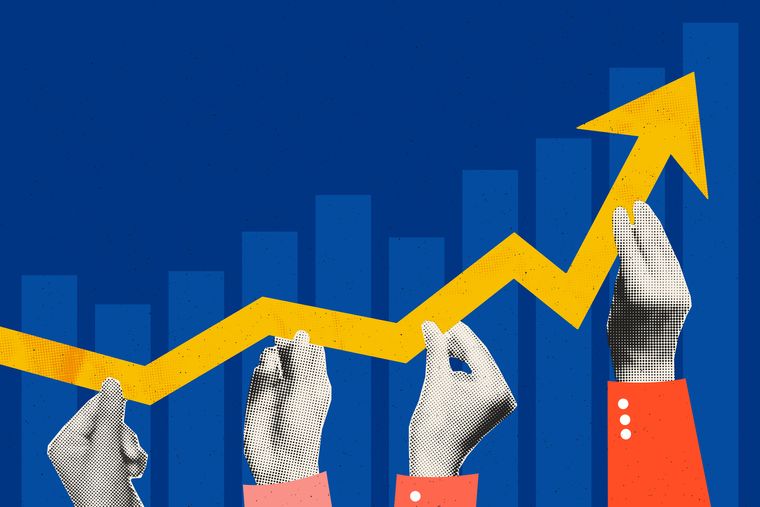The importance of flexible working
Two leading experts focus on enhancing the productivity and culture of their operations

Article series
Insight250
- The importance of business sense in research
- The role of humour in effective leadership
- The importance of ethics
- The importance of disruption in innovation and leadership
- The importance of Disruption in Innovation and Leadership Part 2
- The importance of Diversity & Inclusion
- The impact of colour
- Communicating insight with impact
- Insights on leadership, culture and polling
- The evolution of electric vehicles
- 2022 Top tips (part 1)
- 2022 Top tips (part 2)
- Maximising the potential of data
- The importance of flexible working
- Winners
- The importance of advanced analytics
- Judges for the 2022 Insight250 Awards announced
- The evolution from social listening to digital intelligence
- The Judges' Perspective
- The judge's perspective - part 2
- Insight Climate Collective
- Insights technology
- Understanding employee ownership
- Global insight perspectives
- Top Tips from our Leaders and Innovators
- The Evolution of Insights in the Food & Beverage Market
- The Evolution of Insights in CPG
- Neural Mechanisms Behind Consumer Decision-Making
- Celebrating and Elevating the Insights Industry
- The State of the Insights Industry
- Opportunities, challenges and threats that AI presents
- 2024 Insight250 Winners Announcement
- Connecting Brands and Consumers Through Insights
- The Importance of Human Insight and Attention
- The Elevating Role of Insights with Technology Innovation
- Haleon’s Insight Expert on Consumer Healthcare
- Insight from the Insight250: How AI is Impacting Qualitative Research
- How AI Tech is Doing the ‘Heavy Lifting’ for Insights
- Reviewing the top tips for 2025
- Google's Sarah Ashley on AI and revolutionising insights - Insights from the Insight250
- Beyond BI: The Future of Decision Intelligence for Insight Professionals
- The Advancement & Impact of Insights - An Insight250 Winners Series perspective with David Smith
- International Jury for the 2025 Insight250 Awards Announced
- Newly elected President, Anne-Sophie, on Revolutionizing the Impact of Insights
- Haleon's Litthya Baez on Enhancing Healthcare with Insights - Insight250 Winners Series
- Understanding the Insights of Consumer Decisions
- Moving Beyond Dashboards to Deliver Decisions with AI
- How AI is Transforming Insights
- How AI is Transforming Insights
- Five Years of Insight250: Elevating the Insight Industry
The Insight250 spotlights and celebrates 250 of the world’s premier leaders and innovators in market research, consumer insights and data-driven marketing. The inaugural list was revealed this April and created renewed excitement across the industry whilst strengthening the connectivity of the market research community.
With so many exceptional professionals named to the Insight250 it seems fitting to tap into their expertise and unique perspectives across an array of topics. This weekly series focuses on doing just that; inquiring about the expert perspectives of many of these individuals in a series of short topical features.
This edition features two leading experts who are focused on enhancing the productivity and culture of their operations and a big part of this is how their employees and teams work in today’s dynamic environment. Georgie White is the Group Insights Director, for British Telecom (BT) and Sinead Jefferies is the Founder of Vela and also serves as Chair Designate of the UK’s Market Research Society.
As the complexity of our lives increases it applies pressure and impacts our working environments and how we effectively interact with our co-workers and customers. The idea of flexible and remote working has seen a dramatic increase in adoption by organisations, but what does it mean for efficiency, efficacy and the future of work. I discuss it all with these two experts.
People often talk about flexible and remote working as one, but they are different; how would you summarise these?
Remote working is one element within flexible working. Obviously for lots of people over the last two years, it’s become way more prominent than it ever was before, but for a long time it has been a part of the flexible working ‘toolkit’. Flexible working is the bigger picture, it’s thinking holistically about the ways in which companies and individuals work, and ensuring that – where people need and want it – they have options beyond the traditional 9-5 in an office five days a week. That might be remote some or part of the time, it could be job sharing, it might be working 3 days a week, it might be working mornings only – or even working term times and having school holidays off. The principal is about designing a way to work that allows someone to get the job done, in a way that veers from the traditional.
Sinead Jefferies
What’s your experience of these approaches at BT and do you think they work?
Flexibility is fantastic, it enables us to be more inclusive, attracting and retaining fantastic talent that we may otherwise not have secured if we’d taken a more traditional approach. It helps ensure we’re more balanced, protecting mental health and being happier in our lives. It encourages creativity and helps people get the right balance in their lives and as a result bring their best when they’re working. As employers, you want people to be refreshed, enthusiastic and creative when they’re at work– flexibility is great at enabling this.
Remote working definitely has a role to play. How to optimise it is one of the things I think many of us are still figuring out – and some approaches will work brilliantly, others won’t, and we’ll need to continuously learn – what worked one week may not the following for various reasons. Figuring out, what are the times that are best to be with others (either in the office or elsewhere – when are they in), and what are the times that are best to be remote. Without a doubt getting back into an office, connecting with people, bumping into others you’ve not spoken to for a while, catching up, or solving problems (without having to schedule a meeting!) and running workshops, are all types of activities that are really beneficial in person. However, other subjects are more effective remotely – getting your head down for some focused work or thinking time, attending virtual focus groups where we can often have better representation with more inclusive digital groups, and much larger attendance, don’t need you to be in the office. It’s been brilliant heading back into the office (especially for mental health, separating work and personal life), but it has taken more planning; Being in the office on days your stakeholders or team are in if you want to be face to face, learning how to run hybrid meetings, remembering how long it takes to go between meeting rooms! Like most teams, we’re still learning and I suspect this will continue to iterate throughout 2022.
Georgie White
Sinead, how has remote working made us rethink how we do our jobs? What are the upsides and challenges it presents, particularly in the insight sector?
I think for a starter it’s made remote working seem a LOT more achievable than people previously thought. There has been (and sadly continues to be!) lots of debate around whether people are productive enough, are they clocking on and off at the right hours, but this is totally missing the point. We need to move to working cultures that support people to focus on outputs, not measuring and monitoring how they do that. Particularly in the work we do in this sector, many of us are fortunate that – beyond commitments to meetings, and collaborating with colleagues, it doesn’t enormously matter if we are writing a report at 7 am, or finishing developing a questionnaire once everyone else has signed off for the day. And it has also demonstrated that people don’t need to be sitting in an office with their manager looking over their shoulder to make sure their work gets done.
“Although the pandemic has presented lots of challenges over the last two years I don’t think I’ve heard of a single insight company that went out of business because they couldn’t actually get the work done… In fact it has often been the opposite – people have struggled to put their own boundaries in place and far too many people have been over-working and being hugely stretched, which is unhealthy in itself, but made even worse by the fact that many of these have felt isolated and lacking in support at the same time.
Sinead Jefferies
What does this mean for the future of the office? How will/should we be using office spaces in the future? What are the opportunities that this opens up?
BT has been transforming its office estate, and in November I moved into our amazing new London office. Bright, airy and lots more collaboration spaces, open tables, different zones for different work, great technology for connecting to others in different locations, and a few typical desks as well. It’s an office that’s now much more focused on helping people collaborate, work in an agile fashion, and is most definitely not about sitting at your desk staring at a screen all day thank god! It’s a great example of the future of the office – helping people collaborate in a great environment, lots of light and really great space to be their creative best. Recognise they need different environments for different things throughout the day - for example quiet areas and meeting rooms still have a role to play when in the office.
Georgie White
Much as I am a huge advocate for flexible working, and the role remote working plays in that, for many companies the office will always have a place. The most forward-looking companies that I’m working with to help them develop new approaches to work are looking at a more purposeful use of the office. It’s no longer the default place you come to do your job on a daily basis, it’s the place you come specifically to engage with colleagues, to get together with clients, to provide support and development to your teams. And what’s more, taking a more positive deliberate approach to how we use offices also lends itself to those intentional encounters being way more meaningful than they were before. We are choosing to engage and collaborate with people. We value their presence when we see them – so it allows us to improve the quality of our relationships with people, even if that’s much less frequently than we saw them before.
Sinead Jefferies
What’s the impact of remote/hybrid working on building relationships, growing networks? What are the challenges, how can we go about doing this without so much f2f interaction?
Again there are upsides and downsides. I personally have developed so many strong relationships, got new business opportunities, made really meaningful connections and even friendships with people over the last two years, without ever having seen them in real life. Much as we all need to manage the amount of time we’re on screen and taking Zoom calls – and that is absolutely critical to do for our wellbeing – it’s so much easier to have a quick 30 minute chat with someone, when trying to meet in person might have taken hours out of your day just to travel to somewhere mutually convenient for a coffee. I think what we are missing is the accidental encounters (not with colleagues, I think the whole narrative around missed water cooler moments is a massive red herring) but with people we’ve never met. The kind of people you meet having a drink at a conference, for example. But there are still ways to do that. Better use of social media, particularly LinkedIn, can be hugely helpful. Being engaged, commenting and getting involved with other people’s posts, listening to the conversations that are going on and taking part where you have something to say, will often lead to new encounters and new opportunities.
Sinead Jefferies
There was some interesting research, that throughout the last 2 years we’ve got closer to those we work regularly with (we see their families, their homes, their pets now), but more distant from those we’re not in regular contact with, as we’ve not ‘bumped’ into them. Of course, it is not impossible to build those networks remotely, but it does take a different focus and approach, and speaking personally, I know some of these have slipped where I’ve not put deliberate effort into them – versus had I bumped into them in the office or at a conference say, it would have given me the reminder I needed to get back in touch.
Georgie White
What are your pointers for people in early stages of their career on how to make remote working approaches work?
I actually talked about this recently at an MRS & More conference (along with Adam from BT as it happens), so I think I will stick to the same key points (and in fact joining networks like MRS & More are a great place to start.)
Figure out the pattern that works best for you – what do you enjoy most about working from home? What do you get done best at home and what are the things that, ideally, you would do in person with colleagues? Use this to plan your time and how you do your work (if you have the possibility for hybrid working).
Boost your skills and learning. You might be missing out on in-person side by side learning from not being in the office with colleagues, but there are so many brilliant courses available that it’s a great opportunity to develop a whole new range of skills. Even things like the MRS Conferences and Webinars which are all available on-demand and either are free or at much cheaper rates than the live events.
Be brave about balance. Own your own diary and make sure you take the time for things that give you joy, or allow you to de-stress, or bring creativity in some better way. All good managers will want their people to feel fulfilled and happy, and being a better, more balanced person is the best way to make sure you are a better employee.”
Sinead Jefferies
To add to Sinead’s comments, all of which are great!
1) Work out when others will be in the office, including perhaps people you don’t work with so frequently but want to get to know, or could have some great pointers to help you in your career – align those days with being in the office
2) Think about how to raise your profile when working remotely – (eg) organising team quizzes, asking to present to key stakeholders
Make sure you take plenty of breaks if you’re at home – don’t become glued to your laptop or zoom/teams call for 8 hours a day!
Georgie White
Sinead, how has the shift to remote working changed people's priorities and expectations?
I think for some people it has enabled them to find much better balance in their lives and the realisation that after all this time spent commuting and having long days in the office, working from home can mean you get to do your job, but also spend time with friends, discover new or long-lost hobbies, concentrate on your health and wellbeing. So I think a lot of people will want to hold onto that, regardless of where we go post-pandemic. For others it has reinforced that actually being with colleagues on a regular basis is really important to them, they struggle without that immediate in-person support, or they simply find it more motivating to work alongside other people. And that’s a really important discovery too and allows people to prioritise their own working future, whether in their current job or with their next company.
“I think the challenge I’m not sure has still been fully addressed is getting the culture right. Not all CEOS, MDs, etc, are fully comfortable yet with the trust that’s needed for remote, but also the shifts they need to make to think about their ways of working, their employee engagement, etc. If that isn’t urgently addressed, then we are going to have more and more unhappy people seeking out those companies where the bosses get it and are reaping the rewards of healthy and supportive working cultures. We really are a people industry, and it’s vital that all employers are having a long hard think about what a great place to work looks like in 2022 and beyond.
Sinead Jefferies
Just to add to this, we need to remember that remote working isn’t a benefit that everyone can have. A significant proportion of the UK working population can’t benefit from this flexibility, which can also create further inequality. As insight professionals we need to remember this, and ensure our own views of the world don’t forget this and we don’t become too locked in our own bubbles.
Georgie White
HOT TOPIC
Sustainability: Sinead you are very involved with the MRS and with their Net Zero pledge…what’s that all about and how can people get involved?
This is such an important issue right now, and over the last two years has gone from something a minority of people see as important to an absolutely central pillar of how we do business – and indeed how we live!! The NetZero pledge is a way to engage the sector in starting on their sustainability journey. It helps companies focus on the key things they need to be doing to reduce their carbon emissions. We’re being pretty ambitious with it, as there is a huge imperative there to act fast, but also because we see that people across the sector are hugely engaged in taking action. The challenge is that lots of people don’t know what to do and where to start, and we are busily working away adding to the pool of resources to support people on that journey. It’s also really important for people to be part of a community, where there are other people trying to figure out the same issues, so signing the Pledge, becoming part of that community, will instantly give you a network, resources, and a point of contact to help you figure out how to progress towards that Net Zero target.
Sinead Jefferies
Georgie, what is BT doing in the sustainability space - do you require your agencies to be signed up to the Market Research Society (MRS) Sustainability Pledge and the Diversity & Inclusion pledge?
BT has a longstanding commitment to sustainability, having led on climate action for 30 years. BT Group has recently announced plans to curb its carbon emissions sooner than planned, by bringing forward its net zero target from 2045 to 2030 for its own operational emissions and 2040 for its supply chain and customer emissions. Within these aims, in 2020, the company announced that it had completed the switch to 100% renewable electricity worldwide and pledged to transition the majority of its 33,000 strong commercial fleet to electric or zero carbon emissions vehicles by 2030.
In addition, BT Group has made huge strides in digital skills, having – through its Skills for Tomorrow programme - helped 10 million people across the UK improve their digital knowledge and confidence, a goal that has been reached five years ahead of schedule. This has then led us to set an ambitious new goal that extends the target to help 25 million people make the most of life in the digital world by 2026.
And in December 2021, BT Group launched a new business-wide plan to focus and accelerate its efforts to build a better business for its customers, the economy and society at large. Ensuring BT Group’s growth is responsible, inclusive, and sustainable, the new BT Group Manifesto outlines the action the business is taking, and the measurable commitments it has put in place, to create greater impact with a clear commercial agenda. This includes accelerating access to transformative technology and ultrafast networks, building a bigger, more diverse talent pool and driving the faster adoption of sustainable practices. Both of these pledges are really important to us. Sustainability is absolutely critical and BT has a long track record here. I think it is fantastic that the MRS is raising the profile of this within the industry and providing some of the resources to help agencies better understand what action they can take.
Georgie White
TOP TIPS
We spend more time at work, than time with any of our friends or family, so make sure you enjoy what you’re doing, and have the right balance in your life!
Georgie White
Take time to figure out what helps you be the best at work, and then take ownership of achieving that for yourself. Find the best way for flexibility to work for you and go out there and get it.
Sinead Jefferies
Thank you both - two fascinating perspectives from another deserving pair of Insight250 Winners - lots for us all to reflect on …
Don’t forget to nominate your Global 2022 Insight250 Winners at www.insight250.com. Next week we’ll hear from Mark Langsfeld, Chair and Kristin Luck, Vice-Chair of Judges of the Insight250 on what makes a Global Leader & Innovator in our profession.

Sinead Jefferies is a leader in strategic insight, having run high-performing teams both in agencies and in large client organisations across multiple sectors. She is a flexible working champion, who has worked remotely for more than six years, from her home in rural France. Over the last two years she has been using her unique blend of experience to support both teams and individuals to be better at remote and hybrid work through training, coaching and consultancy. Sinead is a Main Board member (and Chair Designate) of the MRS.

Georgie White is Director of Insight at BT. Georgie leads an Insight Centre of Excellence that serves all parts of BT, EE, Plusnet across its B2C and B2B business units, ensuring that the customer and data is at the heart of the company, helping drive BT’s transformation. The team is involved with everything from big long-term strategy to go to market and customer experience, with a focus is on business partnering and championing insight that drives brilliant decisions. Prior to BT, Georgie worked at brands such as Centrica, British Gas, Capital One and Merrill Lynch, in roles covering Insight, Data and Commercial within both B2C and B2B environments in the UK and Globally. Georgie is a passionate advocate for D&I, including championing more women into careers in data, neurodiversity and driving for better representation and inclusion within the Insight industry.
Crispin Beale
Chairman at QuMind, CEO at Insight250, Senior Strategic Advisor at mTab, CEO at IDXCrispin Beale is a marketing, data and customer experience expert. Crispin spent over a decade on the Executive Management Board of Chime Communications as Group CEO of leading brands such as Opinion Leader, Brand Democracy, Facts International and Watermelon. Prior to this Crispin held senior marketing and insight roles at BT, Royal Mail Group and Dixons. Crispin originally qualified as a chartered accountant and moved into management consultancy with Coopers & Lybrand (PwC). Crispin has been a Board Director (and Chairman) of the MRS for nearly 20 years and UK ESOMAR Representative for c15 years. As well as being CEO of Insight250, Crispin is currently Worldwide CEO of Digital Communications Solution Agency, IDX. Crispin is also the Senior Strategic Advisor at mTab and the Chairman of QuMind and spent 4 years as Group President of Behaviorally where he was responsibile for the client & commercial teams globally. Crispin is a passionate advocate for blending human intelligence and technology to deliver innovation and leadership across organisations.
Article series
Insight250
- The importance of business sense in research
- The role of humour in effective leadership
- The importance of ethics
- The importance of disruption in innovation and leadership
- The importance of Disruption in Innovation and Leadership Part 2
- The importance of Diversity & Inclusion
- The impact of colour
- Communicating insight with impact
- Insights on leadership, culture and polling
- The evolution of electric vehicles
- 2022 Top tips (part 1)
- 2022 Top tips (part 2)
- Maximising the potential of data
- The importance of flexible working
- Winners
- The importance of advanced analytics
- Judges for the 2022 Insight250 Awards announced
- The evolution from social listening to digital intelligence
- The Judges' Perspective
- The judge's perspective - part 2
- Insight Climate Collective
- Insights technology
- Understanding employee ownership
- Global insight perspectives
- Top Tips from our Leaders and Innovators
- The Evolution of Insights in the Food & Beverage Market
- The Evolution of Insights in CPG
- Neural Mechanisms Behind Consumer Decision-Making
- Celebrating and Elevating the Insights Industry
- The State of the Insights Industry
- Opportunities, challenges and threats that AI presents
- 2024 Insight250 Winners Announcement
- Connecting Brands and Consumers Through Insights
- The Importance of Human Insight and Attention
- The Elevating Role of Insights with Technology Innovation
- Haleon’s Insight Expert on Consumer Healthcare
- Insight from the Insight250: How AI is Impacting Qualitative Research
- How AI Tech is Doing the ‘Heavy Lifting’ for Insights
- Reviewing the top tips for 2025
- Google's Sarah Ashley on AI and revolutionising insights - Insights from the Insight250
- Beyond BI: The Future of Decision Intelligence for Insight Professionals
- The Advancement & Impact of Insights - An Insight250 Winners Series perspective with David Smith
- International Jury for the 2025 Insight250 Awards Announced
- Newly elected President, Anne-Sophie, on Revolutionizing the Impact of Insights
- Haleon's Litthya Baez on Enhancing Healthcare with Insights - Insight250 Winners Series
- Understanding the Insights of Consumer Decisions
- Moving Beyond Dashboards to Deliver Decisions with AI
- How AI is Transforming Insights
- How AI is Transforming Insights
- Five Years of Insight250: Elevating the Insight Industry


